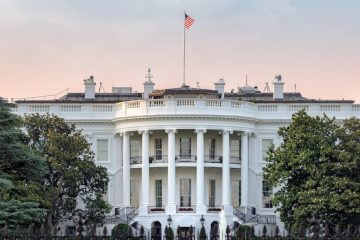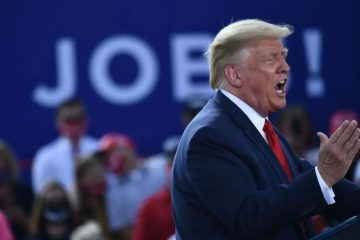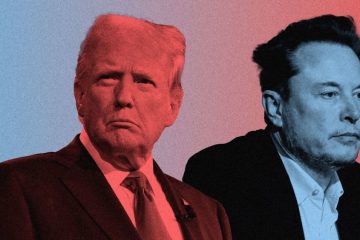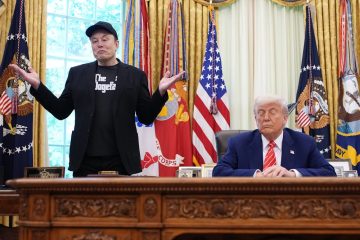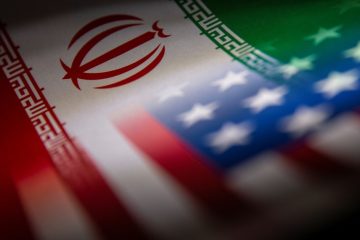Trump and Zelensky fraught relationship
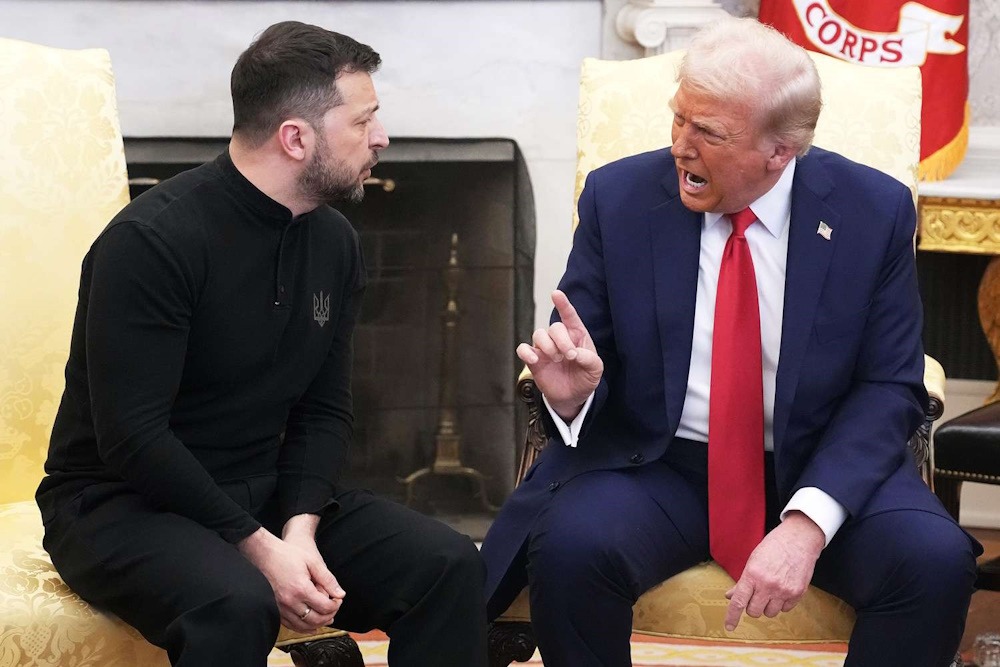
The fraught relationship between Trump and Zelensky can be traced back to a singular phone conversation. President Trump’s recent confrontation with Volodymyr Zelensky appears to have been ignited by the Ukrainian president’s request for increased military assistance during an Oval Office meeting. However, it was also exacerbated by longstanding personal tensions stemming from a previous phone call between the two leaders that led to Trump’s first impeachment.
The current divide poses a significant risk to relations with Kyiv and could create a substantial gulf with Western allies. European leaders have made efforts to mend relations through recent communications with both parties. However, a senior official from the White House indicated on Saturday that the responsibility lies with Zelensky to pursue reconciliation with the United States. Up to this point, he has made only incremental progress. In a series of tweets on Saturday, Zelensky conveyed his appreciation to the U.S. and specifically to Trump for the military assistance received over the years. However, he refrained from issuing any apology for his remarks on Friday, where he sought additional support and contended that Russian President Vladimir Putin was untrustworthy.
Republican Senator Lindsey Graham, a longstanding supporter of Zelensky and military aid to Ukraine, expressed on X this past Saturday that the Ukrainian president’s conduct was “beyond unacceptable” and that his admonitions were “wearing thin.” In a communication directed at Europeans, he stated, “Feel free to defend Ukraine against Putin.” John Bolton, who held the position of national-security adviser to Trump for a year and a half during his first term, remarked that Trump’s personal animosity towards Zelensky is disproportionately influencing U.S. foreign policy. He noted that “if he likes a foreign leader, we have good relations with that country.” “If he disapproves of a foreign leader, we share that sentiment,” he remarked. Trump openly acknowledges his disdain for Zelensky. Thus, the equation is presented before you. John Bolton, who held the position of national-security adviser during President Trump’s initial term, asserts that the president’s sentiments towards a foreign leader significantly influence U.S. relations with that nation.
The meeting in the Oval Office on Friday was intended to set the stage for the signing of a business agreement that would strengthen ties between Trump and Zelensky. Kyiv was poised to transfer to Washington the rights to exploit rare earth minerals and metals in Ukraine, resources critical to the U.S. defense and technology sectors. However, the ostentatious exhibition of financial solidarity devolved into a televised spectacle of underhanded tactics. Trump and Vice President JD Vance criticized Zelensky’s management of the war and his perceived lack of sufficient gratitude. The signing ceremony was called off, and Zelensky was requested to depart from the White House. In an interview on ABC, Secretary of State Marco Rubio criticized Zelensky for undermining the planned signing by seizing “every opportunity to try to Ukraine-splain on every issue.” Rubio has previously indicated that White House officials expressed irritation towards Zelensky for persistently advocating for additional weaponry, despite the U.S. already supplying billions in aid.
John Herbst, former U.S. ambassador to Ukraine during the George W. Bush administration and currently a senior director at the Atlantic Council in Washington, D.C., noted that Zelensky visibly annoyed Trump during their Oval Office meeting by persistently criticizing Putin and urging Trump for U.S. security guarantees in front of the live television cameras. Herbst suggested that Zelensky might have navigated the situation more effectively by addressing those issues in a private discussion following the Oval Office meeting. Herbst noted that Ukraine has a legitimate requirement for security assurances; however, the meeting on Friday, akin to previous engagements between the leaders, was marred by their fraught historical relations.“History holds significance as Trump retains certain memories,” remarked Herbst. He recalls grievances. He also recalls acts of kindness.
Trump has consistently expressed doubts regarding the political establishment of Ukraine. He has advanced a theory lacking credible evidence, suggesting that the Democratic National Committee was compromised in 2016 not by Russian actors, but rather by a server situated in Ukraine, a narrative that has also been propagated by Moscow. Trump’s initial interactions with Zelensky, in turn, reinforced his conviction that the Ukrainian president was similarly positioned against him on a personal level. Following Zelensky’s election as president of Ukraine in 2019, Trump initiated efforts to persuade the newly installed Ukrainian leader to announce an investigation into his Democratic opponents.
During his inaugural extensive phone conversation with Zelensky, Trump urged the Ukrainian leader to pursue an inquiry into Hunter Biden, the offspring of Joe Biden—anticipated to be a political adversary in the forthcoming 2020 presidential election. The conversation precipitated Trump’s inaugural impeachment and potentially played a role in his loss during the 2020 election. Trump refuted allegations of misconduct, characterizing his discussion with Zelensky as “perfect.” Bolton, who served as national-security adviser at the time, remarked that Trump “has never forgiven Zelensky for the repercussions of the so-called perfect conversation.”
Zelensky maintained a measured distance from Trump following the latter’s departure from office; however, he reestablished contact during the previous year’s presidential campaign, only to swiftly commit a notable misstep. Republicans have expressed disapproval over his joint appearance with Pennsylvania’s Democratic governor at a factory producing shells for Ukraine, characterizing the visit as politically motivated. Zelensky faced criticism from GOP members for labeling now-Vice President Vance as “too radical” and asserting in an interview with the New Yorker that Trump “doesn’t really know how to stop the war even if he might think he knows how.” Zelensky made a visit to Trump at Trump Tower in New York, following which they engaged in a light exchange during a joint appearance on Fox News. Trump reiterated his belief that a swift resolution to the conflict was achievable, whereas Zelensky emphasized the necessity of expelling Russian forces from Ukraine.
However, Herbst noted that beneath the surface pleasantries, a persistent tension existed between the two, both of whom have a track record of public outbursts and escalating rhetoric directed at one another. Herbst observed that Putin, with whom Trump has engaged in multiple conversations since assuming the presidency, has navigated the U.S. president’s bouts of irritability with remarkable skill by refraining from reacting to them.
Following his inauguration in January, Trump took to his Truth Social platform to assert that Putin must bring the war to a swift conclusion or risk the imposition of U.S. sanctions. “We can approach this matter with simplicity or complexity,” he articulated. According to Herbst, while aides to Putin expressed outrage over Trump’s perceived disrespect, the Russian leader himself remained silent and allowed the issue to fade away. Following Trump’s engagement with Russian officials in Riyadh last month, Zelensky expressed his dissatisfaction regarding his exclusion from the discussions. Hours later, Trump expressed his “disappointment” regarding Ukraine’s response and seemed to attribute the initiation of the conflict to Kyiv. The following day, Zelensky remarked that Trump had become ensnared in a Russian “disinformation space.” Shortly after, Trump referred to Zelensky as a “dictator” who has “done a terrible job.”
The confrontation intensified in a comparable manner during the Oval Office meeting on Friday. Zelensky appeared visibly strained during a thirty-minute exchange characterized by courteous dialogue, as Trump asserted his positive rapport with Putin and expressed confidence in his ability to broker a peace agreement with him. Zelensky has consistently asserted that Putin is untrustworthy and emphasized that Ukraine requires military support from the U.S. for any peace agreement to be viable. Following his assertion that Putin breached ceasefire agreements with Ukraine during Trump’s final term, Vance remarked that Zelensky was exhibiting disrespect and ingratitude by engaging in a public dispute with Trump in the Oval Office.
Vance highlighted Zelensky’s visit to the Pennsylvania plant, suggesting it served as a campaign stop for Democrats, while Trump, alongside his vice president, criticized Zelensky for perceived ingratitude. Trump asserted that Putin held him in high regard, suggesting that their relationship was strengthened by their shared experience of countering unfounded accusations from Democrats regarding collusion to manipulate the 2016 elections.
Special counsel Robert Mueller determined that collusion was absent, despite the U.S. intelligence community’s assertion that Russia attempted to sway the election in favor of Trump. Trump posited that the shared ordeal of legal challenges, orchestrated by Democrats, forged a bond with the Russian president that surpassed any connection he might have with Zelensky. “I can assure you, Putin faced significant challenges with me,” Trump stated, elevating his tone in response to a reporter’s final inquiry during Friday’s strained meeting with Zelensky. “He endured a fabricated investigation that exploited him alongside the narrative of Russia, Russia, Russia.” “It was a ruse orchestrated by the Democrats,” he asserted. “He was compelled to endure that experience.”

